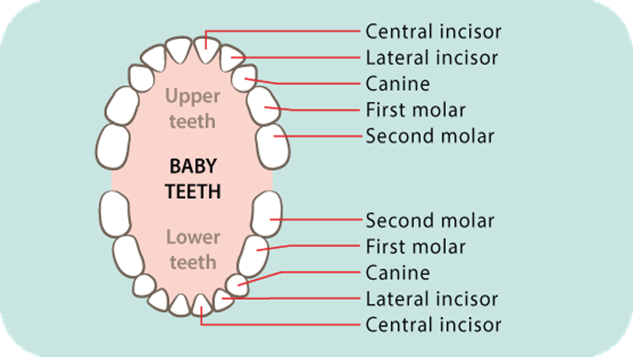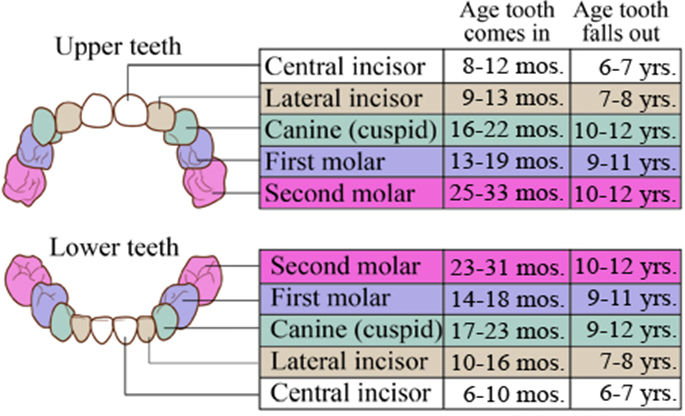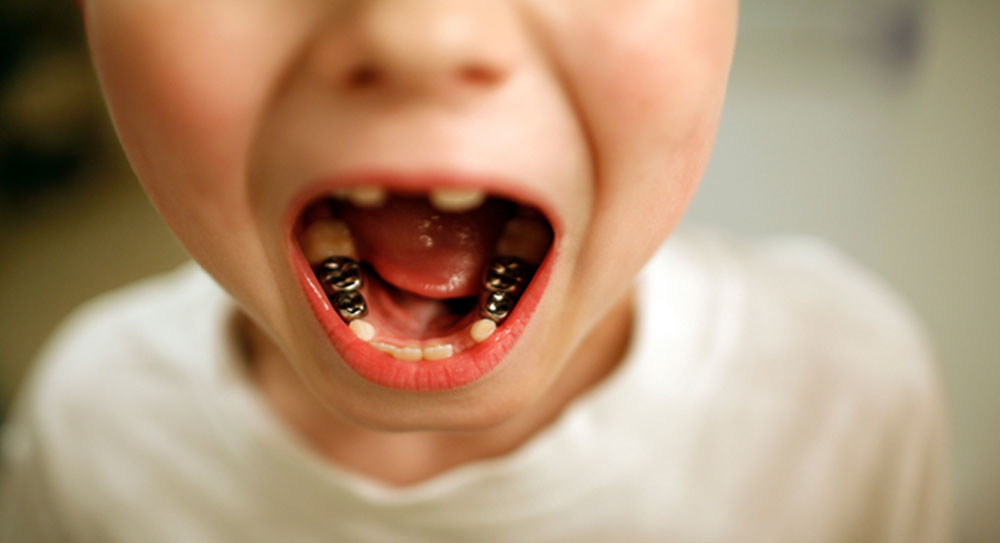Shortly after age 4, the jaw and facial bones of the child begin to grow, creating spaces between the primary teeth. This is a perfectly natural growth process that provides the necessary space for the larger permanent teeth to emerge. Between the ages of 6 and 12, a mixture of both primary teeth and permanent teeth reside in the mouth.

Most children begin losing their baby teeth between the ages of six and eight. They typically fall out in roughly the same order in which they grew. Keep in mind that all patients are different. Children and adult oral conditions depend on how long they've gone without an appointment, how long a child's baby teeth last, and what kinds of things you are naturally more sensitive to.
The following flowchart shows when baby tooth comes in and fallout

Baby teeth usually stay in place until they are pushed out by permanent teeth. If a child loses a baby tooth early as a result of tooth decay or an accident, a permanent tooth might drift into the empty space. This can crowd permanent teeth and cause them to come in crooked.
It's important to start practicing good oral hygiene as soon as your child's first baby tooth erupts. As your child starts to lose his or her baby teeth, reinforce the importance of proper dental care



